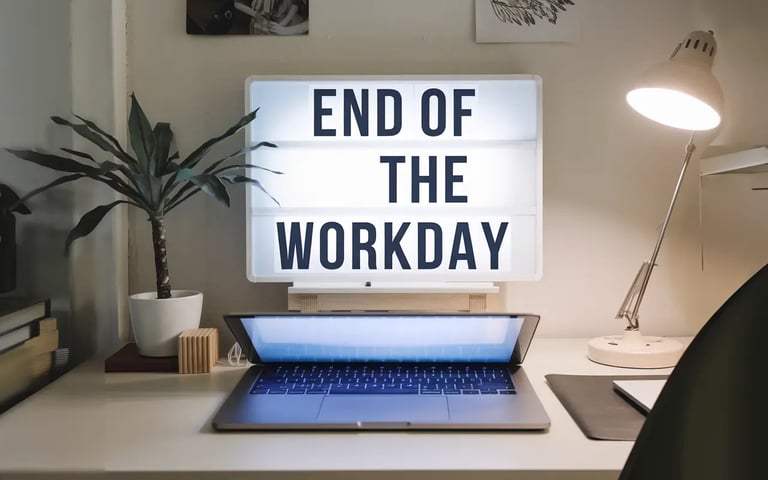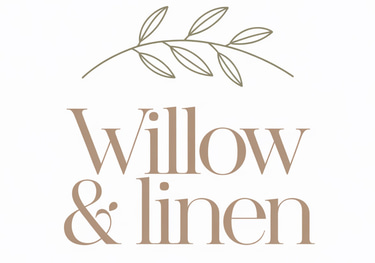The Dark Side of Productivity: Why Over-Hustling is Killing Your Joy (and How to Break Free)
WELLNESS


Productivity is a modern badge of honor. From Instagram posts showing perfectly organized desks to late-night hustle culture hashtags like #GrindNeverStops, we’ve been conditioned to believe that doing more equates to being more. But behind the glorification of busyness lies a darker truth—our obsession with productivity is taking a significant toll on our mental health, relationships, and overall happiness.
It’s time to have an honest conversation about what over-hustling is costing us and why slowing down might just be the key to living a more meaningful, fulfilling life. This isn’t about abandoning ambition; it’s about redefining what success looks like and learning to approach life with intention rather than exhaustion.
The Problem: When Productivity Becomes Toxic
The Rise of Hustle Culture
Hustle culture isn’t just a buzzword; it’s a mindset deeply rooted in modern society. It emphasizes relentless work and constant self-improvement, often at the expense of rest, relationships, and mental health. The pressure to be “always on” is amplified by social media, where curated glimpses of people’s achievements can create an endless cycle of comparison.
Studies highlight the dangers of this mindset. A report from the World Health Organization (WHO) identifies burnout as an occupational phenomenon linked to chronic workplace stress. Symptoms include emotional exhaustion, depersonalization, and reduced performance—yet many of us wear burnout like a badge of honor.
The Impact on Mental and Physical Health
The constant drive to do more isn’t just mentally draining; it’s physically harmful. Chronic stress increases cortisol levels, which, over time, can lead to health problems like heart disease, digestive issues, and a weakened immune system. A study published in the Journal of Health and Social Behavior found that overwork correlates with higher rates of depression and anxiety, further underscoring the link between toxic productivity and mental health challenges.
The Cultural Roots of Hustle Culture
Where did this “hustle harder” mentality come from? Sociologists argue that hustle culture is tied to capitalist values, where productivity is equated with worth. The Industrial Revolution introduced the idea of working long hours as a marker of success, a narrative that persists today in many industries.
The digital age has only exacerbated this. With remote work and constant connectivity, boundaries between work and personal life have blurred. A report by Deloitte highlights how this “always-on” culture leaves employees feeling unable to unplug, leading to increased stress and lower overall satisfaction.
Redefining Success: The Case for Slow Living
What is Slow Living?
Slow living is a lifestyle philosophy that emphasizes quality over quantity, mindfulness over multitasking, and intentionality over busyness. It’s about savoring life’s moments instead of rushing through them. Proponents of slow living argue that by focusing on what truly matters, we can achieve not only greater joy but also more sustainable success.
The Psychological Benefits
Psychologists point to the importance of rest and downtime for creativity and productivity. A study from the University of Illinois found that taking regular breaks during work improves focus and problem-solving abilities. Similarly, mindfulness practices, which are central to slow living, have been shown to reduce stress and enhance emotional regulation.
The Solution: How to Break Free from the Hustle Trap
1. Embrace Micro-Breaks
Micro-breaks, or short pauses throughout the day, are proven to boost productivity and mental clarity. Research from the Journal of Applied Psychology shows that even 5-minute breaks can reduce fatigue and improve overall task performance. Consider stepping outside for fresh air, stretching, or simply closing your eyes and breathing deeply for a few moments.
2. Set Boundaries with Technology
Our devices are designed to keep us hooked, but excessive screen time contributes to stress and disrupts sleep. Start small by implementing “no phone zones,” such as the bedroom or dinner table. Tools like screen time trackers or focus apps can help you reclaim control over your digital habits.
3. Reframe Rest as Productive
Rest isn’t wasted time—it’s an investment in your well-being. Studies published in the Journal of Occupational Health Psychology show that workers who take regular vacations experience improved productivity and reduced burnout. Rest allows your brain to recharge, making you sharper and more creative when you return to work.
4. Practice Saying No
One of the hardest, yet most liberating, skills is learning to say no. Overcommitting leads to stress and diluted effort, whereas saying no creates space for what truly aligns with your values. Before agreeing to a new commitment, pause and ask yourself: Does this bring me closer to my goals?
5. Redefine Success on Your Own Terms
Perhaps the most critical step is redefining what success means to you. Is it climbing the corporate ladder at all costs, or is it having the freedom to spend time with loved ones? Write down your definition of success and use it as a guide for making decisions that align with your values.
Real Stories: Breaking Free from the Hustle
Sarah’s Story: A Creative Rebirth
Sarah, a friend of mine who is a graphic designer, spent years working 60-hour weeks, sacrificing her health and relationships. When burnout forced her to step back, she discovered slow living. By focusing on fewer, high-quality projects, she not only reignited her passion but also started earning more while working less.
Alex’s Story: Finding Joy in Simplicity
Alex, my husband's friend, a former tech executive, left their high-stress job to pursue a slower-paced career in sustainable farming. Initially hesitant, Alex now describes their days as deeply fulfilling. “I finally have time to appreciate the little things, like cooking a meal or walking in nature.”
Round-Up: Key Takeaways for Escaping Hustle Culture
Productivity isn’t inherently bad, but over-hustling leads to burnout and dissatisfaction.
Slow living emphasizes mindfulness, rest, and intentionality, creating a foundation for sustainable success.
Actionable steps like micro-breaks, setting boundaries, and redefining success can help you break free from the hustle trap.
Real-life examples show that stepping away from hustle culture can lead to greater joy and even professional success.
Redefine Success, Reclaim Your Joy
Breaking free from hustle culture doesn’t mean giving up on your dreams—it means pursuing them with balance, intention, and joy. By shifting your focus from constant productivity to meaningful living, you’ll find that true success isn’t about how much you do; it’s about how much you enjoy the journey.
So take a deep breath, slow down, and remember: life is meant to be savored, not sprinted through.








Willow & Linen
Embrace slow living and create cozy moments.
let's stay in touch
© 2024. All rights reserved.
